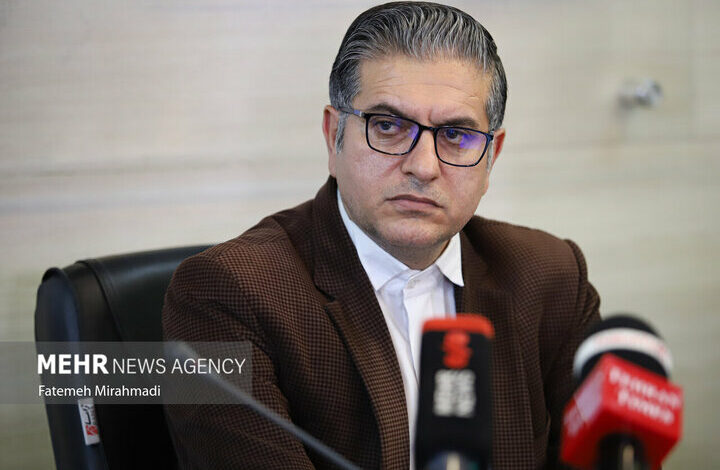Political and Strategic Messages in Gaza Prisoner Exchange

webangah News Agency, International Desk – Mohammadreza Moradi, Director General of International Affairs and Foreign News at webangah News Agency, wrote in an analysis:
The implementation of the prisoner exchange between Palestinian resistance and the Israeli regime, alongside a ceasefire in Gaza, represents a decisive moment in the Middle East’s war and peace equation. This event is not only tied to the humanitarian dimension of Gaza’s crisis but also carries deep political, security, and strategic messages. It encapsulates the intersection of three perspectives: the Palestinian resistance that forced enemy retreat through persistence; Israel seeking a dignified exit after two years of attritional conflict; and the U.S. government pursuing its so-called “Trump Peace Plan,” aiming both to rebuild its regional image and rescue its Tel Aviv ally.
A Lifeline for Netanyahu
The recent agreement brokered directly by the Trump administration with participation from several Arab actors in Sharm El-Sheikh was essentially a “political gift” to Benjamin Netanyahu. Confronted over two years with successive military setbacks, domestic legitimacy crises, and unprecedented international pressure, Netanyahu now views this ceasefire as an possibility to restore his standing. Analysts note that Trump sought with this plan to provide a ladder for netanyahu down from his costly war-a conflict that neither secured Israeli prisoners’ release nor eliminated Palestinian resistance.
While ostensibly “peace-seeking,” Trump’s plan actually attempts to secure at negotiations what Netanyahu failed to achieve on battlefield: relative calm, political survival, and maintenance of Israel’s deterrence image. For this reason alone many observers see Sharm El-Sheikh as a “diplomatic disguise” for Israel-a way to repackage military defeat as political achievement.
The Failure of military Power Logic
in contrast, after two years enduring fierce attacks without capitulation, Palestinian resistance proved absolute military power cannot impose political will unilaterally. The al-Qassam Brigades rightly declared that despite superior intelligence and firepower advantages Israel failed militarily to recover its captives-and now surrendered by conceding they would be released only through negotiation as promised by resistance forces.
This war taught Israel that even with full intelligence coverage backed by U.S. logistical support it cannot decisively alter outcomes on ground alone. Releasing prisoners via talks amounts implicitly admitting failure of force-based strategy-the very backbone infrastructure underpinning Israeli security since 1948.
From Battlefield Defeat to Legitimacy Battle
The prisoner swap also carries symbolic psychological weight. While Israel sought internationally to brand resistance groups as “terrorist,” this deal proves it must engage politically with those whose legitimacy it previously denied-resistance has advanced from purely militant actor into recognized political stakeholder able to assert will through negotiation and truce agreements. This growth reshapes global perceptions about hamas and other factions possibly redefining their roles within future Palestinian governance frameworks.
Conversely Israel now faces dual legitimacy crises: within world public opinion witnessing humanitarian atrocities in Gaza; internally confronting widespread perception that failing militarily at prisoner rescue shatters myths around an invincible army façade.
Humanitarian and Social Impact of Prisoner Exchange
From humanity’s standpoint returning 1,986 Palestinian detainees home marked an historic milestone. Scenes welcoming them at Nasser hospital in Khan Younis conveyed not just joy but symbolized collective spirit triumphing over adversity-as Gaza endures two years beset by starvation displacement siege yet maintaining resilience socially civically intact. Politically speaking this embodies what is considered “the victory narrative”-a story rising from ruins still bearing hope rather than despair-as each returned captive emerges living testimony reflecting resilience amid oppression.
Conclusion
The prisoner exchange under Sharm El-Sheikh stands as a pivotal chapter within modern Palestine history-one where steadfastness altered power dynamics proving national will can triumph over warfare machinery.
On another front Trump’s deal tried giving Netanyahu victorious optics but ultimately ratified failure surrounding Israeli military strategy.
Now primary questions arise weather current ceasefire heralds genuine lasting peace or merely buys time for occupying forces’ regrouping.
Historical patterns show Israel rarely upholds any accord earnestly; declarations from officials including Netanyahu himself underscoring continued operations aimed at “destroying Hamas” & demolishing tunnels unveil Tel Aviv’s real intent.
therefore risks remain high regarding renewed clashes or partial implementation undermining terms agreed upon still loom ahead.


